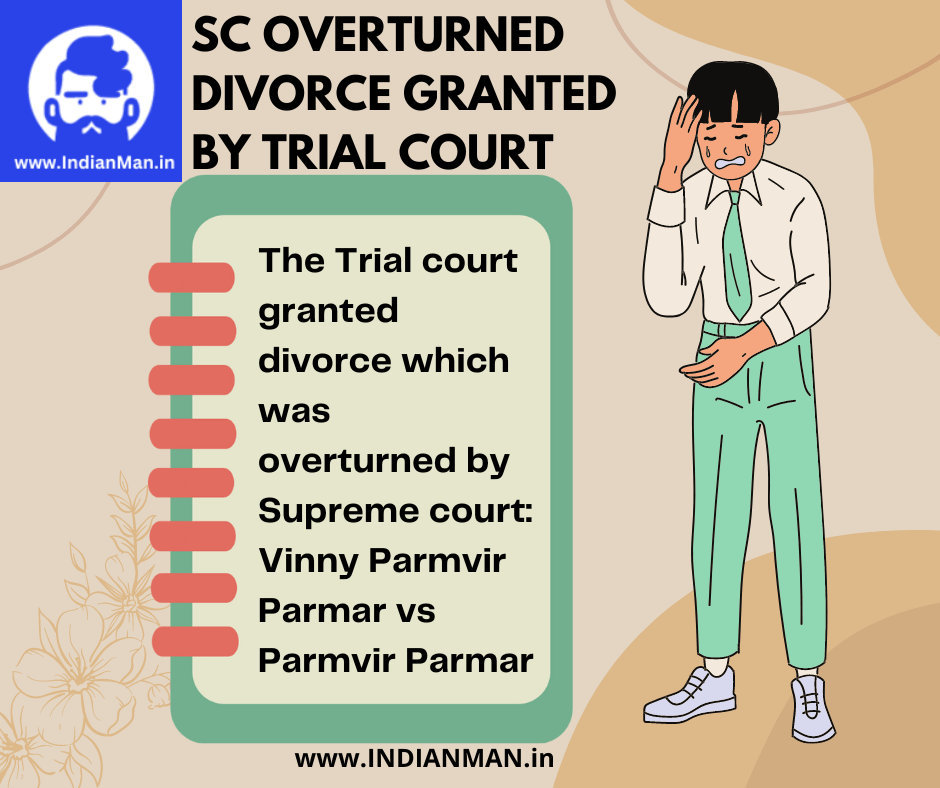Introduction
The Indian legal system has faced criticism over its perceived bias against men, especially in matrimonial disputes. The case of Vinny Parmvir Parmar vs Parmvir Parmar (AIR 2011 SC 270) provides an opportunity to explore this issue. In this article, we will discuss the case’s details, the challenges faced by Indian men, and the importance of gender-neutral laws in India.
Background of the Case
Vinny Parmvir Parmar filed a petition for divorce against her husband, Parmvir Parmar, on the grounds of cruelty. Parmvir denied the allegations and claimed that Vinny had deserted him without cause. The trial court granted the divorce, and Parmvir subsequently appealed the decision in the Supreme Court.
Supreme Court’s Judgment
The Supreme Court overturned the trial court’s decision, granting a decree of judicial separation instead of divorce. The Court held that while Vinny had proven cruelty on the part of her husband, she had not established the requisite ‘irretrievable breakdown of marriage’ needed for a divorce. Furthermore, the Court maintained that a divorce would cause undue hardship to Parmvir.
The Alleged Bias Against Indian Men
Critics argue that the Vinny Parmvir Parmar vs Parmvir Parmar judgment exhibits a bias against men. The Court’s refusal to grant a divorce despite evidence of cruelty and instead opting for a judicial separation has been seen as prioritizing the husband’s interests over the wife’s right to live free from abuse.
Emotional Toll on Men in Matrimonial Disputes
Indian Men involved in matrimonial disputes, such as the one in this case, often face an emotional toll as they navigate the legal process. They may feel that their rights and concerns are not adequately addressed, and this can lead to feelings of frustration, helplessness, and despair.
The Need for Gender-Neutral Laws
The Vinny Parmvir Parmar vs Parmvir Parmar case highlights the importance of gender-neutral laws in India. To ensure that both men and women are treated fairly and equitably, the legal system must recognize the rights and responsibilities of both parties within a marriage.
Reevaluating Divorce Laws
This case underscores the need to reevaluate divorce laws in India. The legal system should establish clear guidelines for when a divorce is warranted, taking into account the specific circumstances of each case. This includes recognizing the rights of both parties and ensuring that decisions are made based on the best interests of both the husband and the wife.
Conclusion: Striving for a Fair Legal System
The Vinny Parmvir Parmar vs Parmvir Parmar case provides an opportunity to reflect on the alleged bias against men in Indian matrimonial law. While some argue that the Supreme Court’s ruling demonstrates an unfair focus on the husband’s interests, others may see it as an effort to balance the rights of both parties.
It is essential for the legal system to continually evaluate and revise its laws to ensure that both men and women are treated fairly and equitably under the law. This includes reexamining divorce and maintenance provisions and working towards gender-neutral legislation that acknowledges the rights and responsibilities of both parties in a marriage.
Share Your Thoughts and Spread the Word
We encourage readers to share their views on this topic in the comments section below. Do you agree that there is a bias against men in the Indian legal system? What changes do you think are necessary to ensure fairness in matrimonial disputes? Let’s engage in a thoughtful discussion and spread awareness by sharing this article with others.



